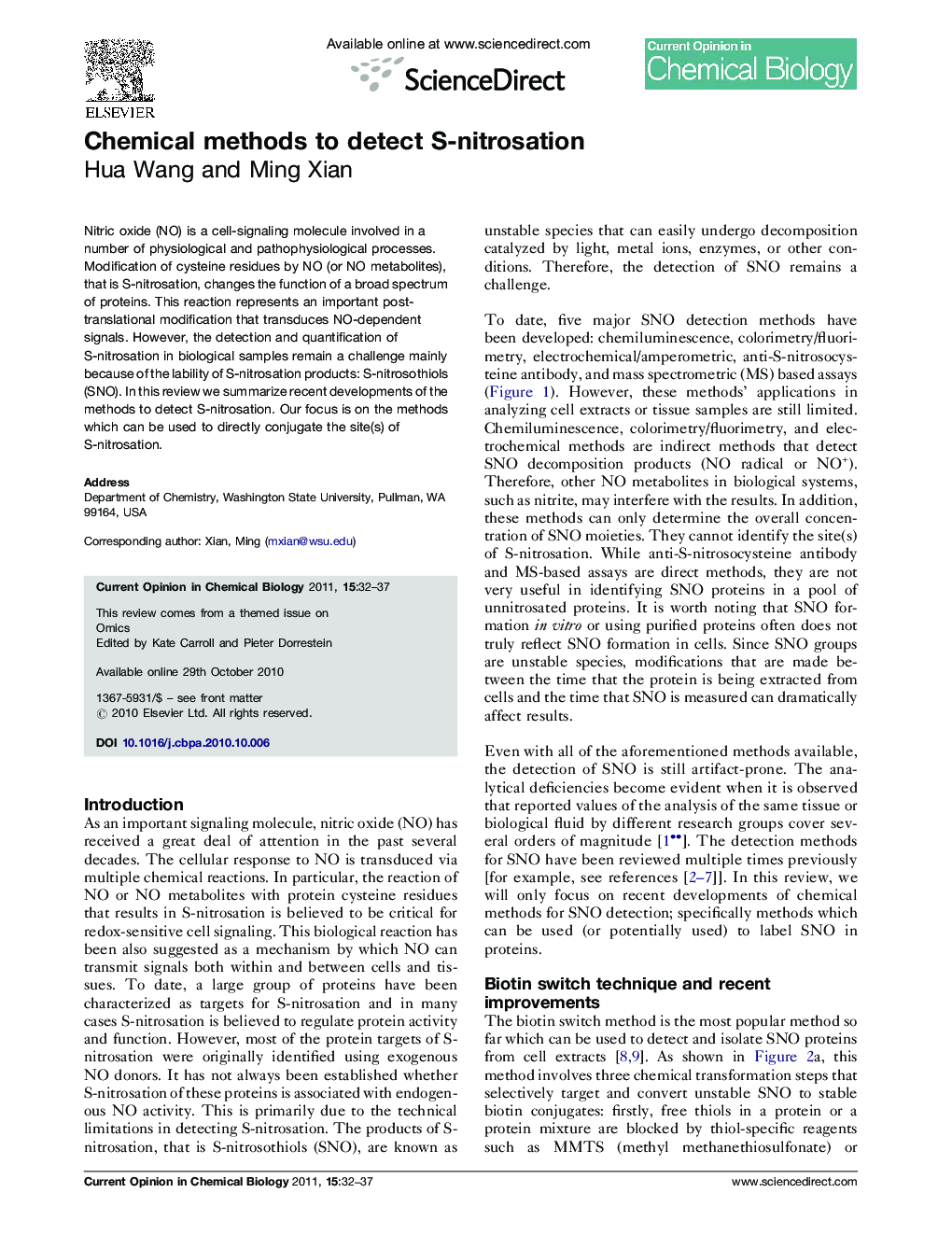| Article ID | Journal | Published Year | Pages | File Type |
|---|---|---|---|---|
| 10564931 | Current Opinion in Chemical Biology | 2011 | 6 Pages |
Abstract
Nitric oxide (NO) is a cell-signaling molecule involved in a number of physiological and pathophysiological processes. Modification of cysteine residues by NO (or NO metabolites), that is S-nitrosation, changes the function of a broad spectrum of proteins. This reaction represents an important post-translational modification that transduces NO-dependent signals. However, the detection and quantification of S-nitrosation in biological samples remain a challenge mainly because of the lability of S-nitrosation products: S-nitrosothiols (SNO). In this review we summarize recent developments of the methods to detect S-nitrosation. Our focus is on the methods which can be used to directly conjugate the site(s) of S-nitrosation.
Related Topics
Physical Sciences and Engineering
Chemistry
Chemistry (General)
Authors
Hua Wang, Ming Xian,
